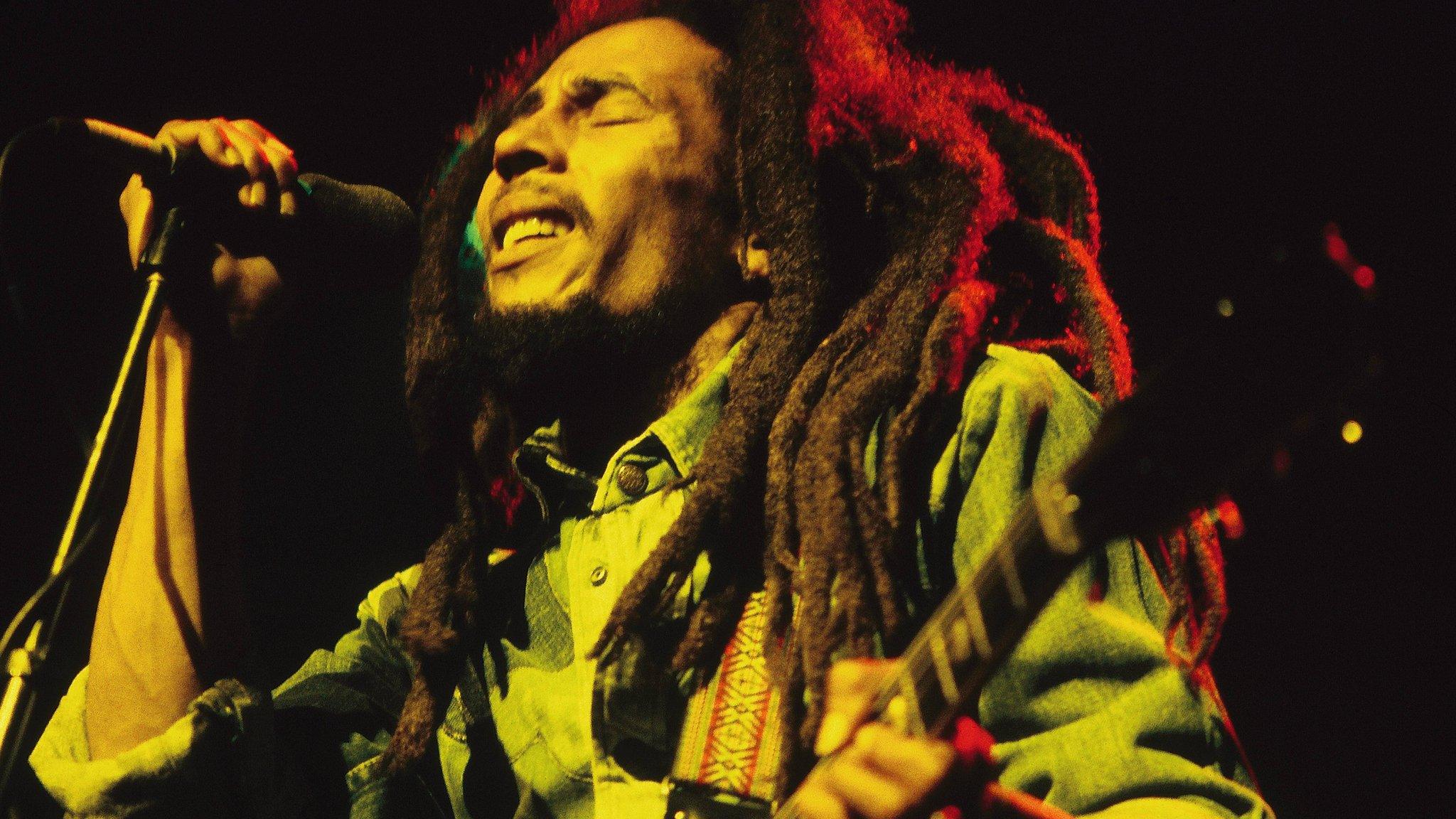Cardiff: Reggae veteran hopes to create digital library
- Published
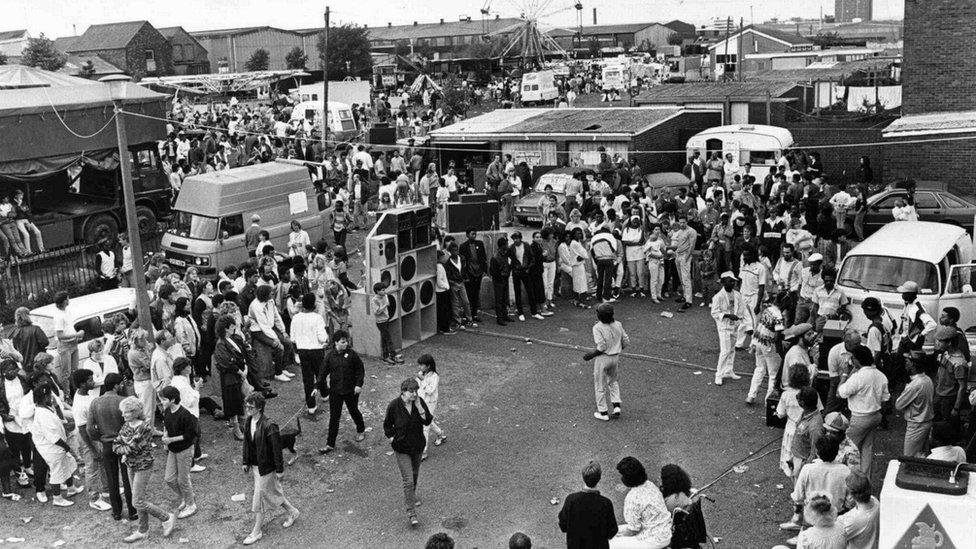
Butetown Carnival in Cardiff would attract tens of thousands of reggae fans in the 70s and 80s
Veterans of a once vibrant reggae scene in Cardiff have called for its revival following decades of decline.
It comes as one historian has made it his mission to archive the history of sound system culture online.
Sound systems - huge banks of speakers with MCs and rappers - led to the emergence of hip-hop in the UK.
Reggae historian Ashish Joshi has travelled the UK collecting old tapes and videos to create a digital library to keep the culture alive.
He believes the culture hasn't been given the recognition it deserves and is hoping to attract a whole new fan base.
"Sound systems have been in existence since the 1950s and have spawned the dance and hip-hop music that you see in the present day," said Mr Joshi.
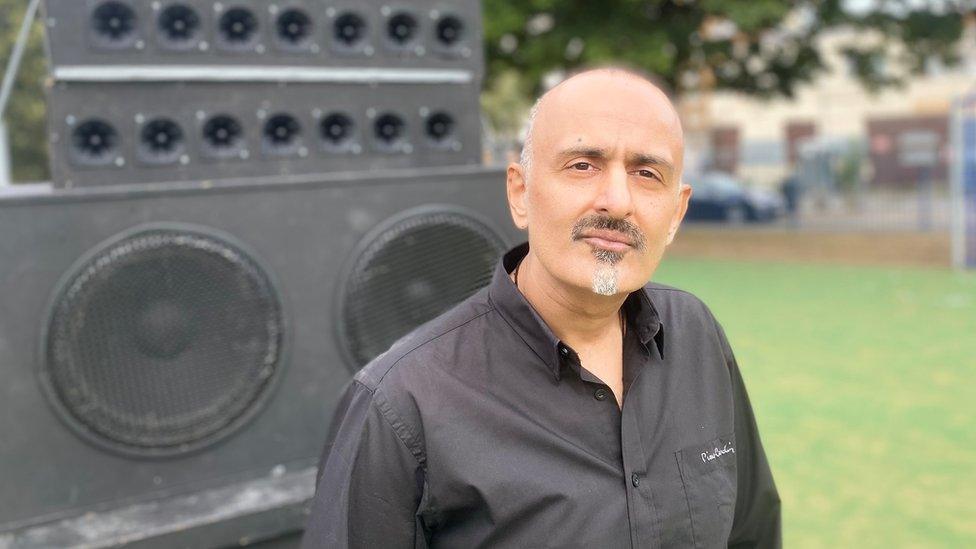
Ashish Joshi is appealing for people with tapes of sound systems to come forward
Sound systems in the 1970s developed a distinctive British style and consisted of several members and developed a loyal following.
This included the manager - who often owned everything - MCs, engineers, selectors (people that selected the music), operators, "box boys" to pack things up and rappers.
"The fans used to follow the sound systems like supporters follow football teams," added Mr Joshi.
"People didn't have the money to buy vinyl records one after another so instead they'd listen to these tapes which only cost a couple of quid and would capture the live essence of the sound system.
"People would collect sound tapes from Cardiff to Jamaica. And that's why I'm collecting and collating them before they're thrown away."
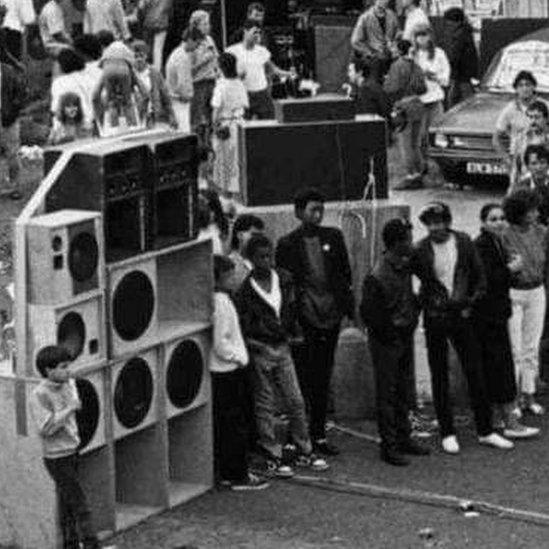
Sound systems at Butetown Carnival would compete in friendly "sound clashes"
Reggae sound systems originated in Jamaica in 1950s with the first ones emerging in the UK in the 60s.
They began playing dancehall and ska before moving onto reggae in the 70s, accompanied by a selector, operator and rapper.
They were a staple at carnivals in the 1970s and 80s, with more than 20,000 people descending on Butetown in Cardiff for the carnival every August.
Rival sound systems would set up their equipment competing in a "sound clash" to draw the biggest crowd.
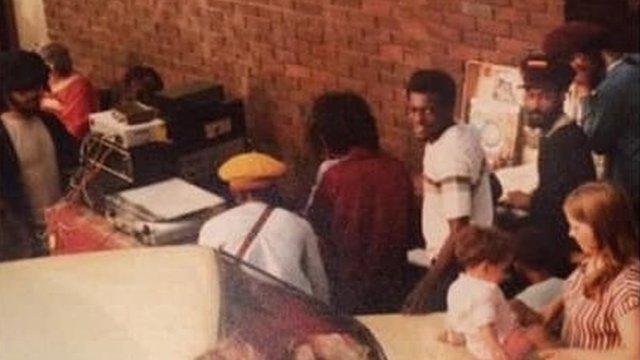
Sound systems from around the UK would travel to Cardiff to play
Mr Joshi said sound systems were the only places to hear the latest reggae in Cardiff, as it was before the BBC or any mainstream radio stations would play the genre.
"If they weren't around the fans could not hear all the hits coming out of Jamaica and London," he said.
In the 60s and 70s sound systems started playing in clubs as more venues began playing reggae.
The New Ocean Club, on Rover Way between Splott and Tremorfa, The Paddle Steamer cafe, the Bosun pub, and the Casablanca nightclub in Butetown were important social gathering places for Cardiff's black community.
Cardiff's reggae sound systems would engage in friendly musical competitions with visiting sound systems from other cities in the UK, including London, Birmingham and Huddersfield.
These "reggae sound clashes" would take place in various venues the fans would vote on the winner, based on musical selection, style and which sound system had the best rappers .
'The sound of Cardiff'
Bingham, from Conqueror - a Cardiff sound system from the 70s - said the rivalry kept reggae "fresh", unlike the pop music of the time where there was no real rivalry.
"In reggae you have to earn respect and it was only the best ones which would make it on to a CD and it kept the competition healthy," he added.
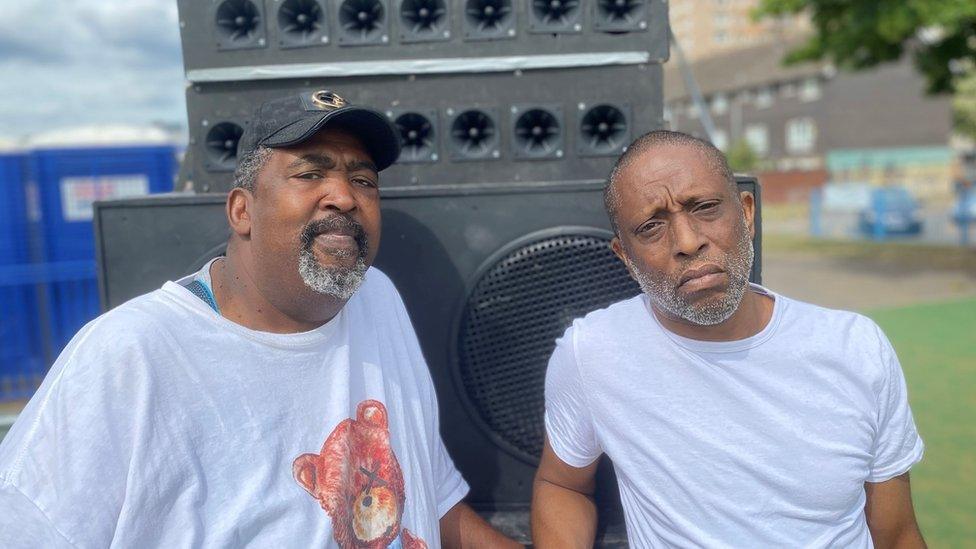
Beefy and Bingham from Cardiff's Conqueror sound system said they were the sound of Cardiff back in the day
Bingham said times have changed now, and people no longer want to carry big boxes of speakers and amplifiers around.
"People carry around their equipment in a briefcase now. But you can't beat the sound systems because you feel the music," he said.
"It was a loyal fan base because you represent your city and Conqueror was the sound of Cardiff."
Allow YouTube content?
This article contains content provided by Google YouTube. We ask for your permission before anything is loaded, as they may be using cookies and other technologies. You may want to read Google’s cookie policy, external and privacy policy, external before accepting. To view this content choose ‘accept and continue’.
Beefy, also from Conqueror, said the sound system era was a "very important time in Cardiff's musical history".
"We played with some of greatest artists - Dennis Brown, Gregory Isaacs, Shabba Ranks. We played with them all back in the day," he said.
"The Paddle Steamer cafe was the hub of the area but that's closed and when the carnival was on, you'd have nearly 30,000 people here. Now there's just a sprinkling of people attending the carnival."
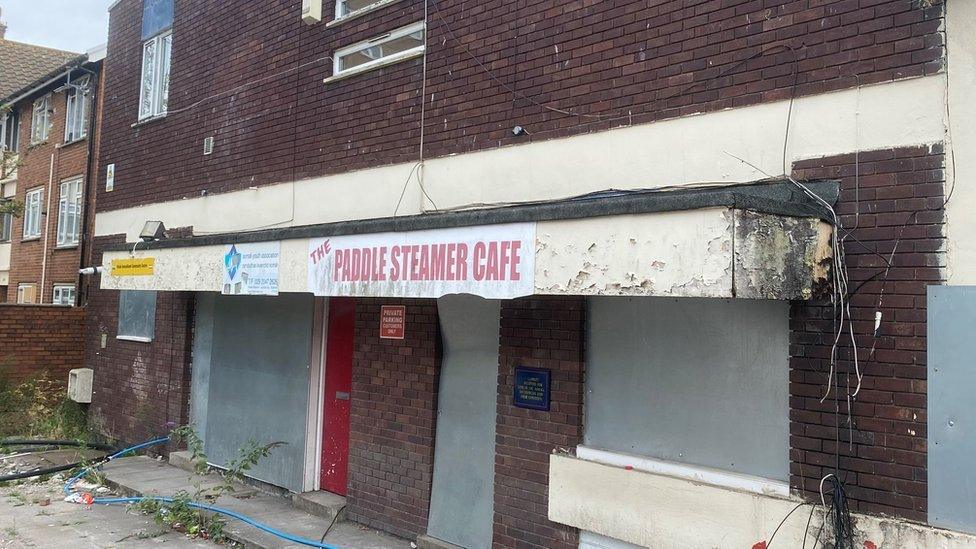
Once an integral part of Cardiff's reggae scene, the Paddle Steamer was finally demolished last week
Sir Coxsone Outernational, from Brixton, were one of Britain's leading and most successful sound systems. In their heyday of the 70s and 80s they would travel to Cardiff to play.
To keep their edge, their star selector Festus would order the latest dubplates from top producers in Jamaica.
"I would air freight my records from Jamaica so it would only take one day for the tunes I wanted to reach England," he said.
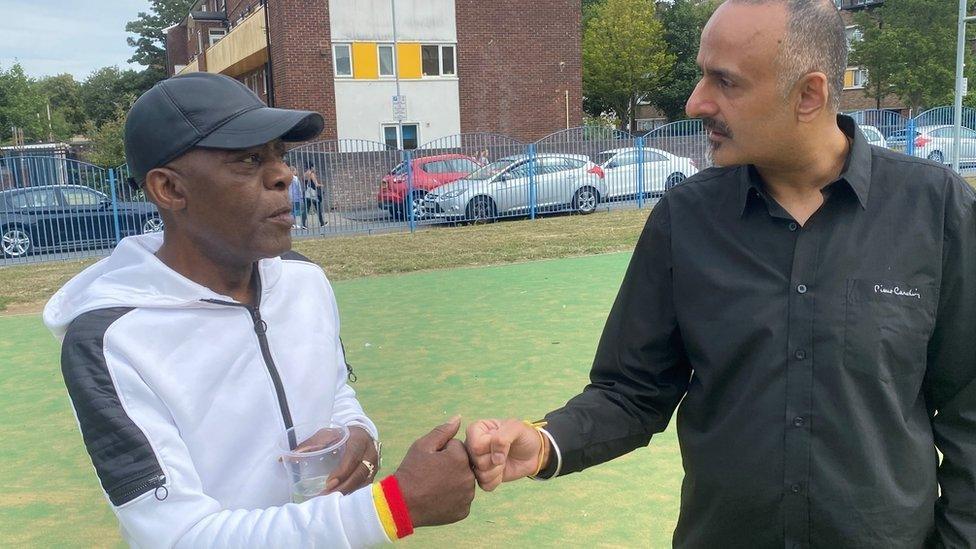
Festus, selector for Sir Coxsone Outernational, says he was the best because he kept ahead
Festus added: "I'd even travel to Jamaica to meet the producers and get the song before it's released to the public or the radio stations, one year or even two years before anyone else.
"Then I would bust the song and that's the way sound system works. That's why I'm the best, as I keep ahead."
Countryman sound system formed in 1982 in Cardiff, and are one of only two still active in the city.
"We went against the best and came out on top and we're still going. But it's difficult to get a gig now in a Cardiff club," said Countryman's Gary.
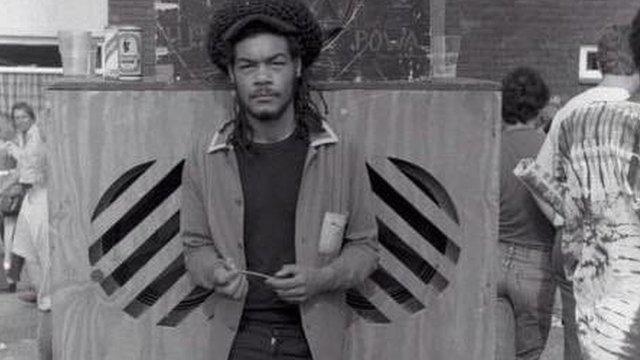
Tylo, from Countryman, thinks club owners believed there was "too much baggage" with sound system culture
Tylo, also from Countryman, added: "It's the same old story in Cardiff, there's no black-owned nightclubs. It's difficult to push reggae then."
"Many club owners still thinking back in the day it's all drugs, crime and violence but it's never been that.
"We used to have the Casablanca in Cardiff, which was a black-owned nightclub but that's closed. That was the best place in Cardiff history for the black community."
Mr Joshi wants young people today to be able experience this culture that has been so important for so many in Wales, and he thinks an online archive is the way to do it.
"If the kids haven't seen or heard the sound systems, how are they supposed to feel the music?"

LOOKING FOR A NEW PODCAST?: The Emiliano Sala Story
INJUSTICE OF A HANGED MAN: The shocking execution of Mahmood Mattan

- Published16 January 2016
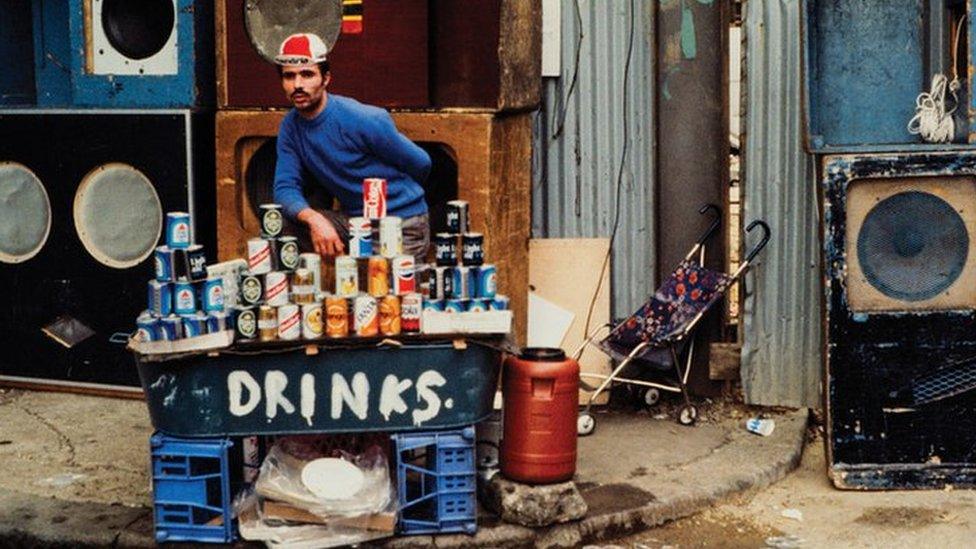
- Published30 August 2021
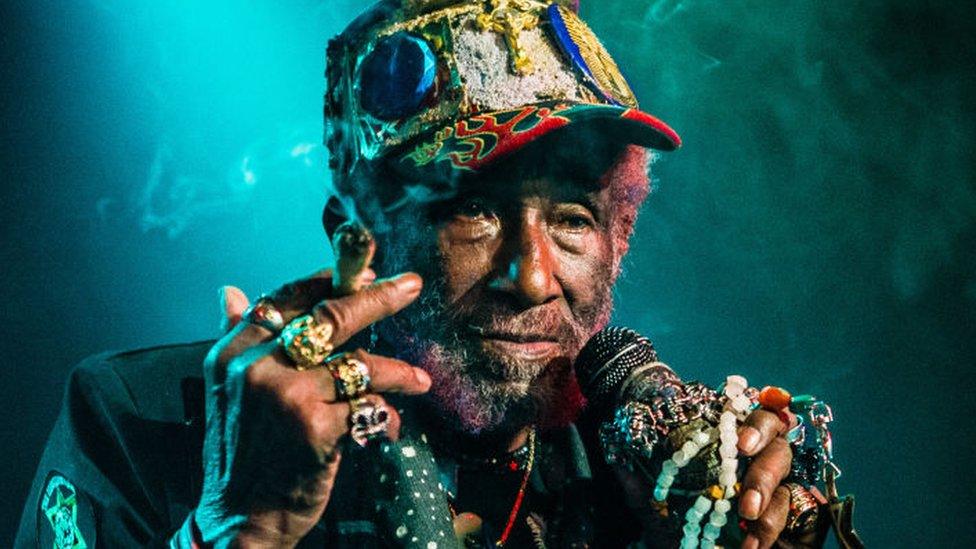
- Published8 March 2021
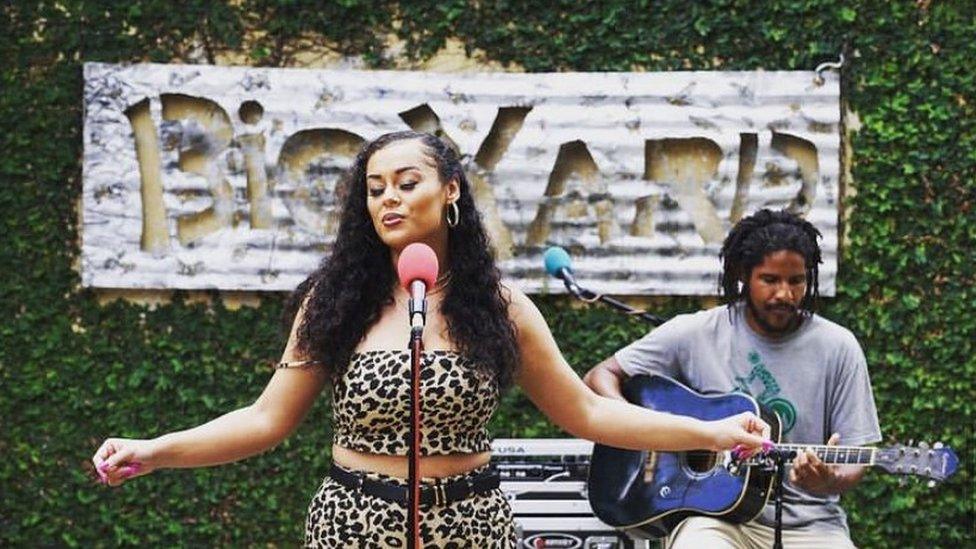
- Published29 November 2018
